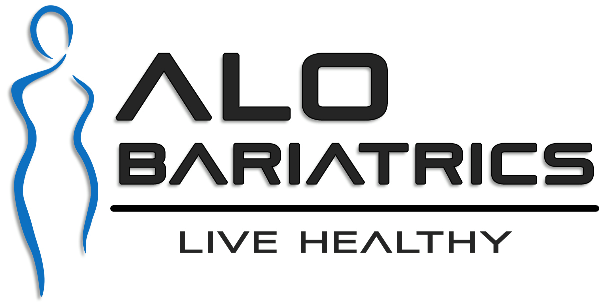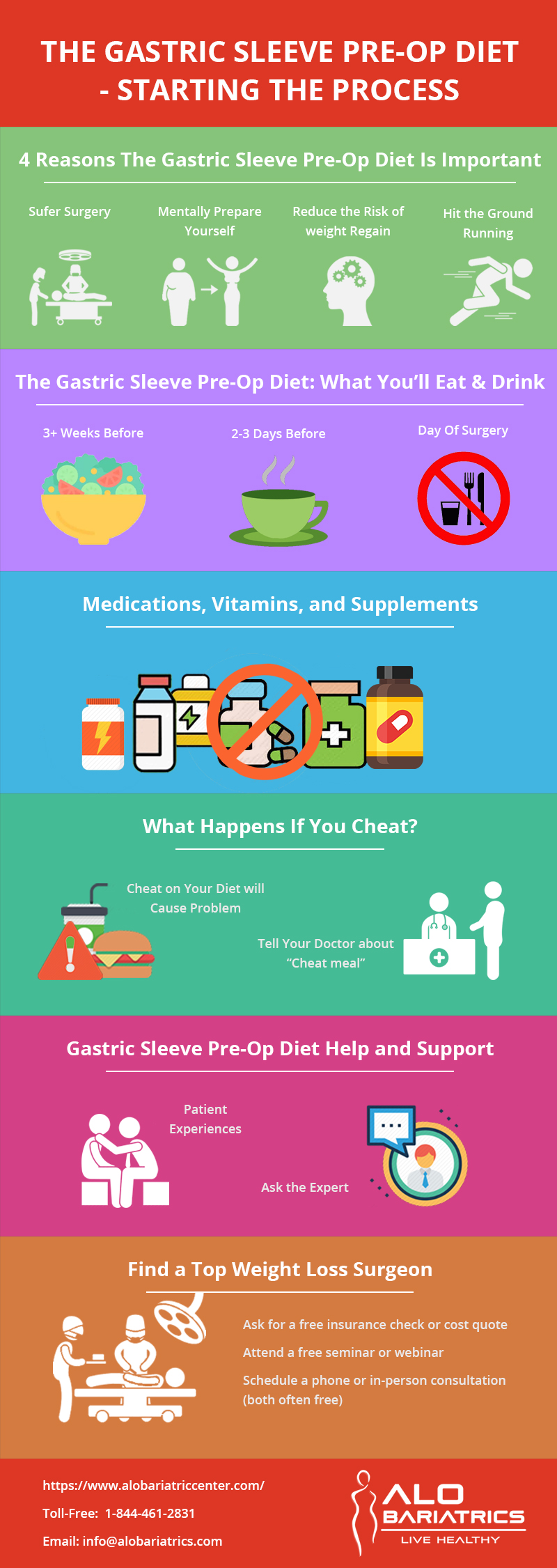Today’s topic is gastric sleeve pre-op diet as not many people are aware of the fact that after gastric sleeve surgery, proper nutrition is required. Patients having high body mass index should go for the pre-op diet and those having less than 35 BMI don’t need it. This diet contributes to weight loss process and following it helps in maintaining weight in the more extended run as well.
Gastric Sleeve Pre-Op Diet Guide
Here are few reasons why pre-op diet is essential:
Prepare mentally
With a pre-op diet, you will be able to prepare yourself mentally. After surgery, things change so prep your meals ahead of time, and by adopting this pattern, it would be easy to train yourself after surgery.
Safe surgery
The pre-op diet shrinks the liver, and your surgeon finds it easy to do the surgery. Because of obesity, the liver swells crowding the area around the stomach which this diet helps in.
Lesser chances of weight gain
Usually, it is seen that after surgery, a person gains weight which pre-op diet can help reduce. Since gastric sleeve pre-op diet gives dietary guidelines, the risk of stomach stretching reduces in those patients who have the habit of munching.
What to Eat and Drink?
The pre-op diet varies according to the time period with which the surgery has to be performed. Before three weeks of surgery, follow this diet:
Take at least 60 grams of protein a day, here is the breakdown:
- 1 oz salmon
- 1 large boiled egg
- 1 oz chicken breast
- 1 oz tofu
Avoid refined sugar and carbs
Refined sugars like candy, coffee creamer, and sugarcane processed foods must be avoided as they make you gain weight. Also, pasta, bread, and grains are rich in carbs and not suitable for health if taken in large quantity. To keep a balance, consume these products in small portions as they can also be a cause of obesity.
Take healthy fats
Some fats are right, and some are not! Here is the list of healthy and unhealthy fats that contributes hugely in weight loss/gain.
Healthy fats
Avocado, green olives, flaxseed, fish, walnuts, etc. are healthy fats to be taken in sufficient amount. Eat 800-1200 calories per day, take lots of proteins and vegetables for proper body nourishment with minerals and vitamins.
Unhealthy fats
Cake, doughnuts, cream cheese, butter and vegetable oil are unhealthy fats which you should avoid. Limit your carbs intake and say goodbye to refined sugar and trans fats.
Pre-op Liquid Diet
For the patients undergoing surgery, it is important to prepare the body first. For that, the liquid diet is most recommended as it gives enough time for the body to adapt to the changes after the surgery. Also, with the liquid diet, the mental and physical preparation becomes easy because the solid diet is not easily digestible for the patient. Perhaps it is essential to digest whatever a patient consumes, and nothing better than liquid diet is there. Don’t worry, you don’t have to be on the liquid diet forever.
Gastric sleeve surgery, bariatric surgery or any other bariatric weight loss surgery procedures are associated with bodily changes and not all liquid diets are suitable for all types. During the pre-op and post-op period, the diet has to be followed properly. The surgeon before performing the gastric sleeve surgery asks whether or not you have performed the diet accordingly. As mentioned earlier, the body mass index is the major factor to determine the time needed to take the diet before surgery.
48-72 hours before surgery
Switch to pre-op liquid diet 2 to 3 days before gastric sleeve surgery. The liquid diet means no food at all, where no food indicates NO solid thing. Take water, broth, and low-calorie sports drinks.
Midnight before gastric surgery
Quit taking drinks or food after midnight on the day of surgery. With this, it would be easy for the surgeons to operate your stomach without getting interrupted due to any liquid stuff or food item. Since the surgeon has to be very careful while doing anything on your body, it is your responsibility to offer them that environment in which they can operate without any problem.
Avoid these medicines or supplements
In order to stay fit and fine, avoid taking these medicines, vitamins and supplements before surgery.
- Herbal supplements
- Arthritis medication
- Anti inflammatory drugs
- Aspirin
- Naproxen
- Ibuprofen
- Warfarin
- Clopidogrel
- Enoxaparin
- Ticlopidine
- Dipyridamole
A week before surgery, it is recommended to remove all these medications as they act as a blood thinner. Let your surgeon know about all the supplements or medicines you have quit or taking currently at the time of surgery. It is essential to reduce the complications that may arise.
What if you don’t follow the diet?
Cheating always has bad results, and if you cheat, you will face serious consequences. Of course, your surgeon will believe what you are saying but while surgery, he will get to know the real scene. If you have been cheating on your meals, tell your surgeon clearly within 48 hours of surgery to avoid any type of risks.
No doubt, we all get fed up with the liquid or pre-op diet and cheating is quite natural during the pre-op diet. Let me tell you, this is not the time to make mistakes so be very careful or else your one meal can put you in a big problem. Having cheat meals regularly while on the pre-op diet will definitely hamper the surgery process.
Bonus Tips
Follow these tips to make pre-op diet a success:
- Begin exercising before your surgery to maintain good health.
- Take multivitamin to fulfil any deficiency after the surgery.
- Avoid taking snacks while on the pre-op diet
- Sleep well at night. Weight loss becomes difficult with sleep deprivation.
- Use a free diet journal to lose weight fast.
- Eat food into small pieces to aid easy digestion. Slow down while eating and don’t gulp in large chunks of food. Take liquid in more quantity for proper hydration.
Thank you for reading it through!


